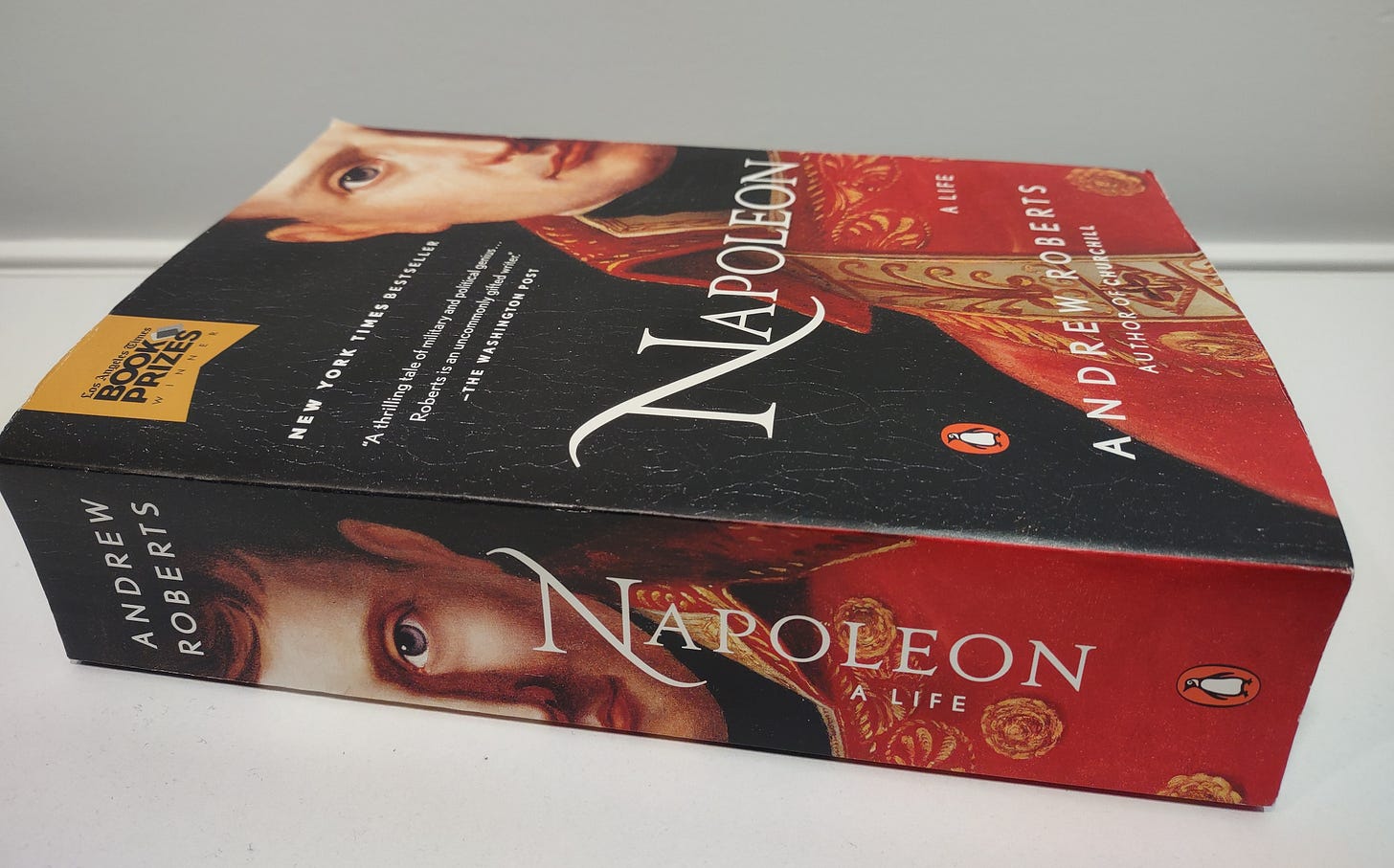‘Napoleon’ Covers Too Much Territory for One Movie
There’s a lot to like, but a miniseries might have worked better.
Among my to-be-read books is a massive biography of Napoleon Bonaparte by Andrew Roberts. My knowledge of French history definitely needs improving, so I’m not the one to tell you how accurate the new Napoleon movie is. I’ll aim to learn that later.
For now, what I can tell you is that director Ridley Scott has delivered a good but flawed historical epic.
Joaquin Phoenix stars as Napoleon, showing us multiple layers of the military commander and emperor—his tactical brilliance, insecurity, lack of self-awareness, and obsession with his first wife, Joséphine, played by Vanessa Kirby.
The movie devotes much of its attention to that unhealthy relationship, which can be hard to watch at times. The two whip back and forth between adoring and loathing each other, and Napoleon does not come across as anything remotely approaching a gentleman. Joséphine is no saint either, though she merits more sympathy. Not surprisingly, Phoenix and Kirby both give excellent performances, portraying the characters as complex human beings, never mere caricatures.
The battle scenes are stellar. Scott and his crew demonstrate meticulous attention to detail as they bring these gritty historical scenes to life, and they pull no punches. These were bloody, brutal, deadly affairs, so that’s what we get on the screen. The movie doesn’t linger on the gore, doesn’t set out to shock or disturb us. The intent appears to be straightforward realism and authenticity rather than conveying any particular message about war.
A ton of work must have gone into coordinating these reenactments, and it shows. Waterloo especially comes across as a masterful re-creation. And I didn’t realize this until afterward, but Ridley Scott is now 85 years old. Pulling off a movie like this at that age deserves some sort of honorary Oscar. Sure, Napoleon as a whole is not his masterpiece, nor is it anywhere near as tightly focused or rewatchable as Alien. Still, good for him. We should all be so fortunate.
There is indeed plenty to admire in Napoleon the movie. But there might have been plenty more to admire in a Napoleon miniseries.
The movie spans a few decades and clocks in at over two and a half hours. And it feels it. Oddly enough, the three-hour Oppenheimer seemed to breeze by compared to this movie, suggesting that different historical biographies are better suited for different formats.
So much of J. Robert Oppenheimer’s life revolved around the development of the atomic bomb, and that gives his movie a strong central focus. Even with all the time-hopping, Oppenheimer feels like a single, complete story with consistent themes.
Napoleon’s life, however, was far more sprawling. The French Revolution is just the starting point. He led armies in war. He led a nation in politics. His battles took him all over Europe. He had a volatile marriage. He spent years in exile. Love him or hate him, the man led a full and eventful life—story-wise, such a life is best divided into episodes.
HBO had the right idea with its John Adams miniseries in 2008. It spread David McCullough’s excellent biography across seven episodes, each zeroing in on a different part of Adams’s life and career. One episode about the Continental Congress and Declaration of Independence. One episode about Adams as vice president. One about him as president.
Adams’ life contained various stories and distinct chapters. A single John Adams movie would not have done him justice—unless it chose to focus on just one of those chapters, as the musical 1776 did. The King’s Speech and Darkest Hour also zoomed in on particular historical moments rather than attempt to tell the full stories of King George VI or Winston Churchill. That’s usually the better approach for historical movies.
Napoleon crams too many chapters into a single story. Individual scenes and moments shine, but watching the whole thing feels like navigating very slowly over choppy waters. We’re missing a number of pieces, which, if included, could have resulted in a longer but smoother voyage, as well as a more satisfying one. Napoleon’s life needed to be told across several stories, each with its own distinct focus as they all build on each other.
Scott apparently has a director’s cut with a runtime that exceeds four and a half hours. I’d be interested in watching that, though I’d probably break it up into four or five parts.
Maybe I’ll have read the book by the time it comes out.






Thanks for this, Daniel. Off to see Napoleon this weekend so intrigued to see how it goes. Think Apple funded this so the longer cut might be made available when it comes to streaming. He does like his “directors cut” does Scott 😁
Also just watched Oppenheimer so that’ll be an interesting comparison 👍🏼